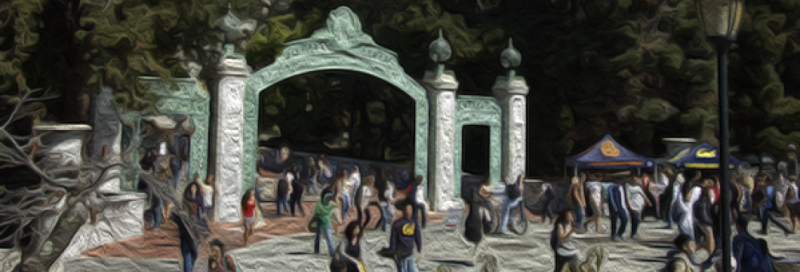How Do Communities Heal After an Incident of Sexual Violence?
A panel discussion presented as part of the "Community Conversations on Sexual Violence and Harassment: Narratives of Activism, Inclusion, Confidentiality, Accountability, and Healing" series
Matrix is located on the 8th floor of Barrows Hall, on the UC Berkeley campus, near Telegraph and Bancroft Avenues, just up the hill from Sather Gate. There are entrances at both ends of the building, but only one of the elevators on the eastern side goes directly to the 8th floor. You can alternatively take the stairs to the 7th floor and walk up the stairs.

Please join us for a panel discussion and Q&A presented as part of a Matrix Research Team entitled "Community Conversations on Sexual Violence and Harassment: Narratives of Activism, Inclusion, Confidentiality, Accountability, and Healing".
Sexual violence occurs in our communities, and the last year has begun to demonstrate just how often. But what next? How do we move forward after an incident of sexual violence or harassment involving members of our community? Acknowledging the impact of an incident on not only the survivor but the community as a whole is essential to preventing retraumatization and future harmful behavior.
How can communities address the traumatization of the survivor and those around them? What does a trauma-informed community look like?
Further, our society is just beginning to hold perpetrators of sexual violence accountable for their actions, and the way we know how to do this is punishment and criminalization. However, punishment of the perpetrator may come at the cost of a broader conversation about the culture that allowed the incident to occur.
Therefore, the goal may not be punishment, but self-reflection and behavior change of the perpetrator. If this is the case, can, or should, reintegration eventually be part of healing? How can a person demonstrate that they have taken steps to change such that that they could return to being a trusted member of the community, and how can the community collectively acknowledge and monitor those changes? What does healing a community healing mean for the survivor, the perpetrator, and everyone else?
Moderated by Rudolfo Mendoza-Denton, Richard and Rhoda Goldman Distinguished Professor of Psychology, UC Berkeley. Panelists include Kendra Fox-Davis, Complaint Resolution Officer, Office for the Prevention of Harassment and Discrimination, UC Berkeley; Tobirus Newby, Licensed Clinical Social Worker, UHS Social Services, UC Berkeley; Julie Shackford-Bradley, Coordinator and co-founder, Restorative Justice Center, UC Berkeley; and Liat Wexler, Prevention Manager for Staff and Faculty, PATH to Care Center, UC Berkeley.
This panel is jointly sponsored by Social Science Matrix and the Office of the Special Faculty Advisor on Sexual Violence and Harassment.



